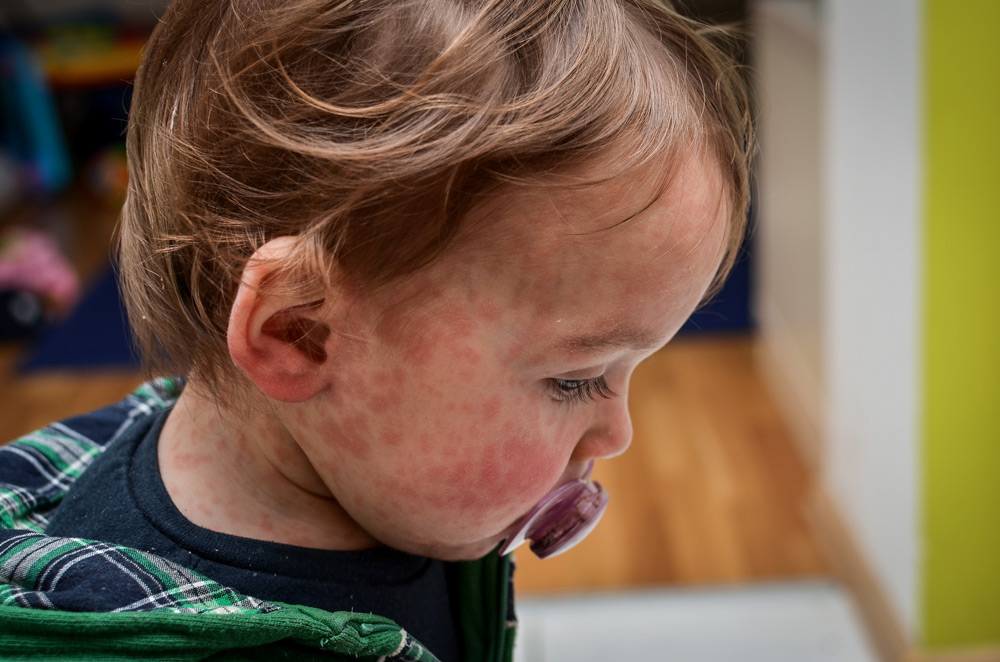Make Sure Your Family Is Current on Measles Vaccinations — Especially If You Are Traveling Internationally
Measles is a highly contagious respiratory virus that spreads through the air when an infected person coughs or sneezes. It’s likely a virus you probably have not thought too much about. Thanks to an effective vaccine, measles was considered eliminated in the U.S. by the year 2000.
Unfortunately, this disease has been showing up recently in pockets across the U.S. due to increased international travel to and from countries where measles is still prevalent. Declining childhood vaccination rates in the U.S. also contribute to local outbreaks, reminding us to stay diligent in vaccinating our children for all preventable diseases.
When it comes to measles, vaccination is the best protection. Here are a few things to know about the vaccine that protects against measles and what to consider if you are traveling internationally.
What is the measles vaccine?
The measles, mumps and rubella (MMR) vaccine protects against measles as well as two other dangerous viruses — mumps and rubella. Ideally, the vaccine is given in early childhood in two separate doses. It’s given as a combination vaccine so there are less pokes for the same protection — making it less stressful for the patient and parent!
Is the vaccine safe and effective?
Yes, the MMR vaccine is safe and effective. The vaccine has been studied and tested thoroughly and is given to millions of healthy children every year.
Two doses of the MMR vaccine are about 97% effective at preventing measles; one dose is about 93% effective.
Who should get the vaccine?
All health care workers and everyone born after 1957 should ensure they are up to date on the MMR vaccination. Children get two doses of the MMR vaccine, starting with the first dose at 12 to 15 months of age, and the second dose at four through six years of age.
Also, anyone six months of age and older who will be traveling internationally should be protected against measles by receiving an early vaccine dose.
Who is at risk of getting measles?
The measles virus is extremely contagious and has staying power. Virus particles from infected people can remain in the air in a small or enclosed area for up to two hours after the infected person leaves.
- Anyone who has not been fully vaccinated against measles is at risk of contracting the virus if exposed.
- Almost everyone who is not immune to the measles virus and comes in contact with the virus will get sick.
What are the risks of a measles infection?
About one in three people will experience complications from the measles virus. Measles can cause serious complications such as pneumonia and brain swelling, especially in children younger than 5 years of age and adults older than 20 years of age.
- About one in five people in the U.S. who get measles will be hospitalized
- One out of every 1,000 people with measles will develop brain swelling, which could lead to brain damage
- One to three out of 1,000 people with measles will die, even with the best supportive care
What should I do before I travel internationally?
Plan to be fully vaccinated at least two weeks before you depart. If your trip is less than two weeks away and you’re not protected against measles, you should still get a dose of the MMR vaccine.
If your family is traveling internationally and your child needs the vaccine, the recommendations are different:
- Babies 6 through 11 months old should receive one dose of MMR vaccine before leaving.
- Childrens 12 months of age or older will need two doses of MMR vaccine (separated by at least 28 days) before departure.
What should I do after I travel internationally?
Monitor your health and your child’s health for three weeks after you return. People who are infected can spread measles to others from four days before a rash develops through four days after the rash appears.
- Measles symptoms typically include:
- High fever (may spike to more than 104°F)
- Cough
- Runny nose
- Red, watery eyes
- Rash (3-5 days after symptoms begin)
If you or your child gets sick with a rash and fever, call your primary care provider. Tell them you traveled abroad and whether you have received the MMR vaccine.
Learn more about measles, mumps and rubella.
If you have questions about the MMR vaccine or need a vaccine for you or your child, call your clinic or reach out to your primary care provider.
